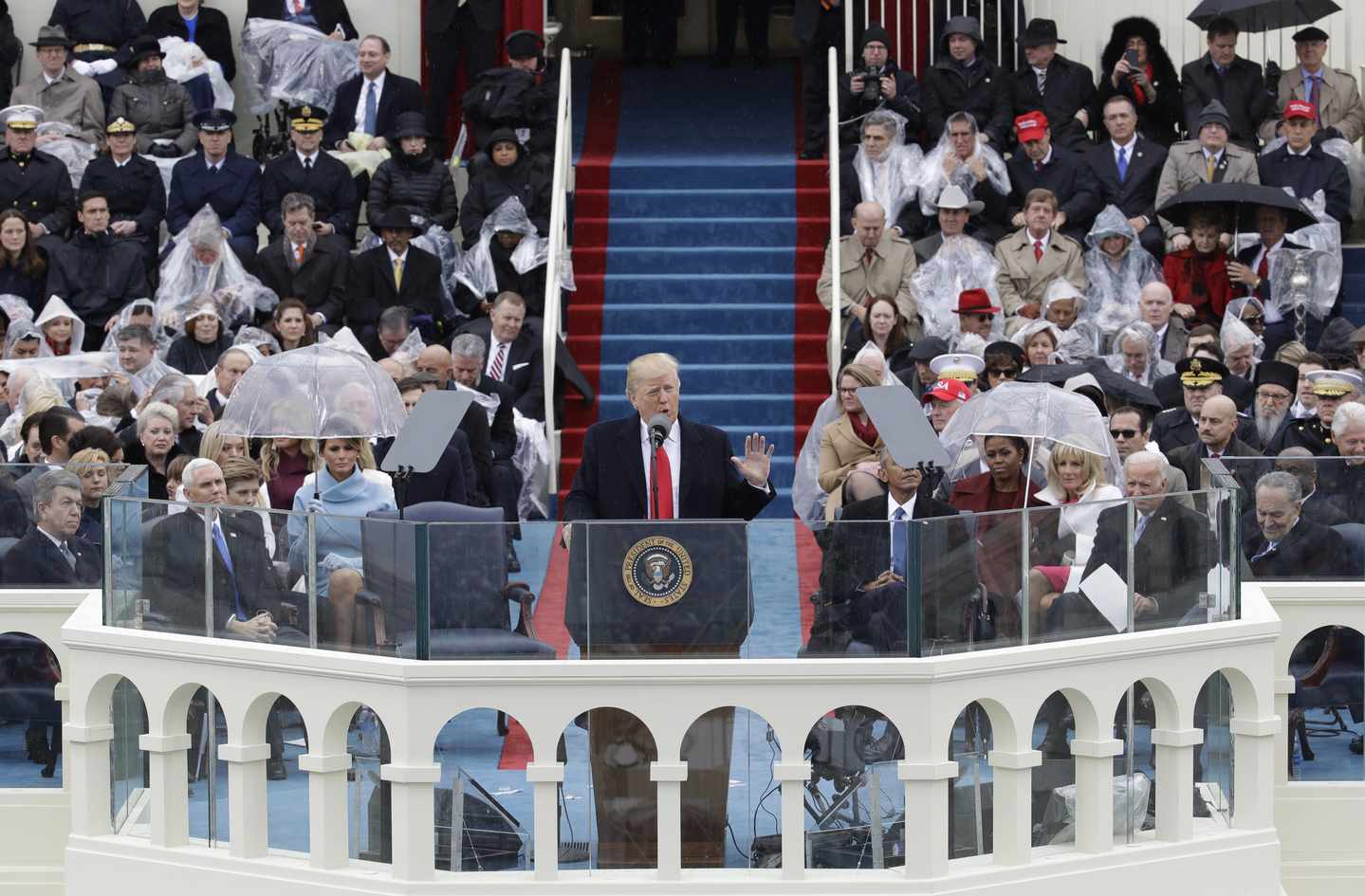Trump Suffers Landslide Defeat But Still Wins? It Could Happen
November 17, 2019#election2020 #DonaldTrump #JoeBiden #NationalPopularVoteInterstateCompact #BernieSanders #ElizabethWarren

Two polls released recently reveal an emerging scenario for the 2020 presidential election that both Democrats and Republicans should view with horror. It is now evident that if the election were held tomorrow, Donald Trump would probably lose the popular vote in a landslide but still win a second term.
A Washington Post-ABC News poll released Nov. 6 has former Vice President Joe Biden leading President Trump by 17 percentage points nationwide; Sen. Elizabeth Warren beats Trump by 15 points; Sen. Bernie Sanders beats him by 14. According to RealClearPolitics polling average, Biden leads Trump by 10 points; Warren leads the president by seven; Sanders, by eight.
Also earlier this month, however, a New York Times/Siena College poll found Trump “highly competitive” in the six battleground states that will probably decide the election. In Michigan, Biden and Trump are even, and in North Carolina, Trump leads by two points. In Florida, Wisconsin, and Pennsylvania, Trump trails Biden by just two to three points and in Arizona by five. Against Warren, Trump leads in three states, trails in one, and is tied in two. Sanders and Trump split the six states evenly.
If the election were held today, these polls indicate that Trump would lose by 10 million to 15 million popular votes – a margin even greater than the crushing defeat of Jimmy Carter by Ronald Reagan in 1980. But, unlike Carter, Trump would have about an even chance of winning a majority of electoral votes and becoming president.
Such an outcome would a disaster for all Americans. It would make a mockery of our system of choosing our leaders and cast severe doubt on the legitimacy of the president – and the presidency itself. It would validate Donald Trump’s own judgment in 2012 that the Electoral College is “a disaster for democracy.”
During the first 100 years of the American republic, only three candidates won the presidency without winning the popular vote: John Quincy Adams in 1824 in a four-way race, Rutherford B. Hayes in 1876 after a legal dispute involving 20 critical electoral votes, and Benjamin Harrison in 1888 when he carried New York by a tiny margin.
But in the 21st century, two of three presidents have been elected without winning the popular vote: George W. Bush in the tight race of 2000 and Trump, who received 3 million fewer votes than Hillary Clinton (causing him to change his mind about the Electoral College’s threat to democracy). Perhaps with the exception of 1888, the 19th century races where popular-vote losers won were flukes. But in the 21st century, the anomaly has become institutionalized.
Currently, presidential races are contested in a small number of states – maybe a dozen, or, in the case of 2020, perhaps as few as six. In 2016, some 94% of candidate events in the general election occurred in just 12 battleground states. Their citizens, who comprise a fifth of the U.S. population, determine who will be president. The rest of us, who live in California or Mississippi, are mere bystanders.
It is a rotten system that has contributed to cynicism and alienation and a lack of voter participation. But it can be fixed – and without a constitutional amendment. The framers of the Constitution could not agree on how to elect presidents, so they punted, leaving the choice to the states. Article II, Section 1, of the Constitution says, “Each State shall appoint, in such Manner as the Legislature thereof may direct, a Number of Electors…”
Today, that “Manner” is the same in all but two states: The plurality winner within that state gets all of the state’s electoral votes. But it doesn’t have to be that way. Every citizen’s ballot can count. Some 15 states plus the District of Columbia have passed laws that instruct their electors to vote for the popular-vote victor nationwide. Those laws – called the National Popular Vote Interstate Compact -- go into effect only when passed by states whose electoral votes reach 270; so far, the total is 196.
Compact legislation has passed at least one legislative chamber in such red and purple states as Michigan, North Carolina, Arkansas, Arizona, and Oklahoma, and surveys have consistently shown that a large majority of Americans (including most Republicans) agree that the person who gets the most popular votes should be the president.
There is a still time before the 2020 election for more state legislatures to approve the compact, or for voters to pass ballot initiatives. America needs to change to a popular vote in the next six months – before we’re faced with the election calamity that the polls foresee.
Source: https://www.realclearpolitics.com/


Comment(s)